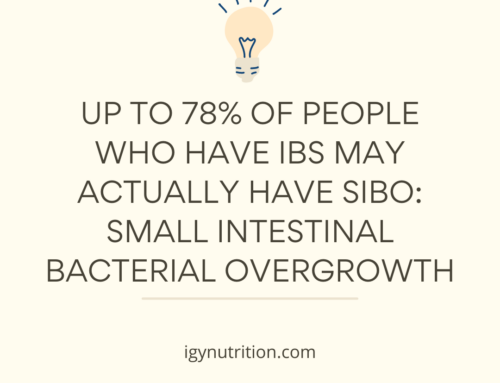Picture Iron Man. We all want to be like Iron Man – strong, mentally sharp, quick on his feet, and energetic.
They don’t call him Iron Man for no reason! Iron contributes to energy levels, immunity, metabolism, thyroid function, and more. If we want to be anything like Iron Man, we better ensure our body has enough iron.
Read on to find out how iron affects the body.
What Does Iron Do, Anyway?
Iron is an essential nutrient (1). Its most important role involves oxygen transportation. Yup, you read that right. Oxygen! Pretty critical if you ask us (or scientists).
Iron constitutes hemoglobin, a protein found in red blood cells. Think back to high school Biology – when you breathe in, your red blood cells snatch up the oxygen from your lungs and transport it to all of the cells in your body.
Without enough iron, the body can’t make enough red blood cells – it doesn’t have enough red blood cell building blocks. And without enough red blood cells, the body can’t absorb enough of the oxygen it breathes (1).
In short, the proper transport of oxygen to our cells depends on iron availability. A lack of oxygen can lead to tiredness, lightheadedness, and many other symptoms.
Without enough iron, we become iron deficient anemic (1). Iron deficiency is a prevalent issue in America – over 5 million people deal with it yearly.
Symptoms of iron deficiency include:
- Fatigue (1, 2)
- Lightheadedness (1, 2)
- Impaired thyroid function (3)
- Hair loss (4)
- Body composition changes (5)
- Impaired immune function (6)
- More
Yup, iron deficiency is not fun.
Iron and Gut Health
For a moment, let’s think about iron in the context of gut health.
Proper immune function is key to a healthy gut. The immune system regulates your gut microbiome composition (7, 8). When bad actors (dysbiotic bacteria) enter your microbiome, who do you think handles removing them? Yep – your immune system.
Though there isn’t much research regarding iron deficiency’s direct effects on gut health, there is ample evidence that iron deficiency impairs immune function (6). And an impaired immune system is shown to detriment gut health by putting one at risk of developing nasty symptoms of dysbiosis, like bloating, gas, and irregular motility (7, 8).
The bright side is that iron deficiency is easily fixed by consuming plenty of dietary iron, taking supplements, or receiving an iron infusion.
Okay, you get it – iron deficiency is BAD. But how would you know if you have an iron deficiency in the first place? Let’s take a look.
Testing Your Iron Levels
If you suspect iron deficiency, you’ll want to get a ferritin blood test (6). Why ferritin and not iron? Think of ferritin as the storage form of iron. If your body hardly has any stored iron (ferritin), that’s typically a cardinal sign of iron deficiency.
If you have symptoms of iron deficiency but fall on the low end of the healthy ferritin range, say 40 ng/mL and under, safely attempting to increase it may benefit you. Some people feel better with more iron available to their bodies. It may be worth a shot, at least.
How do you go about getting a ferritin blood test? Most healthcare providers, like general physicians, can order a test for you, covered by insurance. Sometimes, however, purchasing one on your own is cheaper and faster.
Consider ordering a blood test from Ulta Labs, where ferritin tests usually run for about $20. If you order a test through Ulta Labs, you can go to a Quest Labs location (in nearly every county in the United States) to get your blood drawn. Ulta Labs will typically notify you of your results within three days.
We always recommend working with a healthcare professional to interpret the results of your blood tests, especially if they’re out of the healthy range.
Takeaway: Tackle Iron Deficiency for Optimal Health
Let’s sum it up. Iron is an essential nutrient. We rely on iron for the proper transport of oxygen to our cells. A lack of oxygen can lead to tiredness, lightheadedness, and many other symptoms. Without enough iron, we become iron deficient anemic, which can cause various symptoms, including fatigue, lightheadedness, impaired thyroid function, hair loss, body composition changes, impaired immune function, and more.
Though there isn’t much research regarding iron deficiency’s direct effects on gut health, there is ample evidence that iron deficiency impairs immune function. And an impaired immune system has been shown to detriment gut health by putting one at risk of developing nasty symptoms of dysbiosis, like bloating, gas, and irregular motility.
To determine if you’re iron deficient, you’ll want to test your serum ferritin levels (a blood test). In the next blog, we’ll discuss how to tackle iron deficiency.
References
- https://www.hsph.harvard.edu/nutritionsource/iron/#:~:text=Iron%20is%20a%20major%20component,oxygen%2C%20which%20leads%20to%20fatigue.
- https://pubmed.ncbi.nlm.nih.gov/28189173/#:~:text=Iron%20deficiency%20is%20one%20of,hair%20loss%2C%20and%20restless%20legs
- https://link.springer.com/article/10.1007/s12011-017-0954-x
- https://onlinelibrary.wiley.com/doi/abs/10.1046/j.1365-2230.2002.01076.x
- https://pubmed.ncbi.nlm.nih.gov/33716980/
- https://pubmed.ncbi.nlm.nih.gov/20878427/#:~:text=Iron%20and%20immunity%20are%20closely,%2C%20monocytes%2C%20macrophages%2C%20microglia%20and
- https://www.nature.com/articles/s41422-020-0332-7




